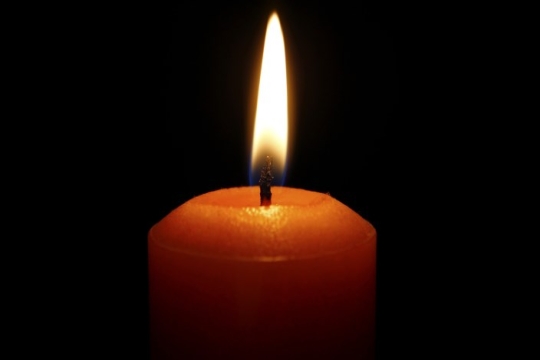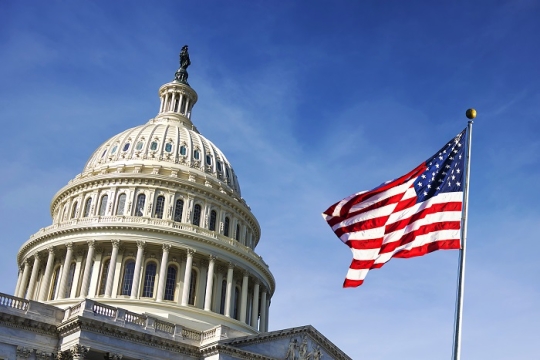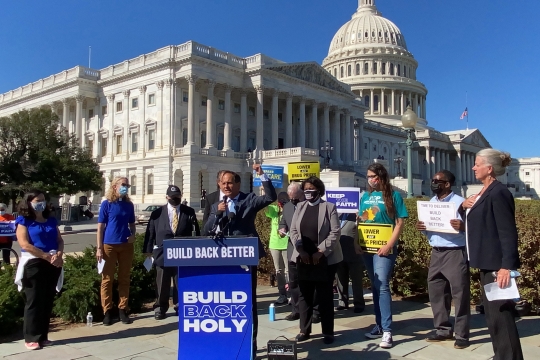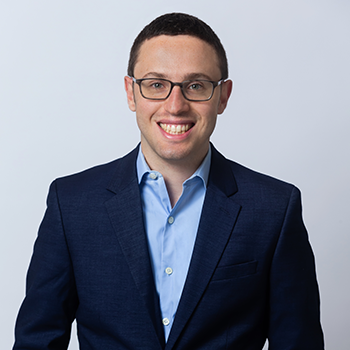
These days, it seems as though a new crisis erupts in the United States every month. The COVID-19 pandemic engulfed the country in early March but was followed weeks later by a sudden rise in public awareness regarding police brutality against Black people.
As the Religious Action Center’s legislative staffer responsible for health care policy, I had been immersed in the Reform Movement’s COVID-19 response since March and was admittedly caught off guard when the news shifted almost entirely to police violence in late spring. I thought to myself, “Racial justice is certainly a critical issue, but has the media suddenly forgotten about the public health emergency?”
This framing, however, was wrong, a product of my own privilege.
As a white person, I can easily forget the racial equity lens vital to this social justice work and instead place current events into separate silos. The truth is that COVID-19 and police violence are both public health emergencies, linked by more than 400 years of systemic racism. Racism itself is a health crisis, and these events are just two important symptoms of it.
Both COVID-19 and police brutality disproportionately affect Communities of Color, particularly Black people. Although the federal government does not clearly disaggregate COVID-19 data by race (a significant problem in itself), state data reveals that more than 25 percent of COVID-19 deaths nationwide have been Black victims, and the average mortality rate for Black Americans is 3.6 times higher than white Americans.
We also know that COVID-19 disproportionately kills Native Americans and Hispanic/Latinx people, and xenophobia in response to the health crisis has caused a dramatic surge in hate crimes and discrimination against Asian Americans.
Significant disparities also exist in police brutality. While Black people comprise just 13 percent of the population, they are 24 percent of those murdered by police officers each year and are three times more likely to be killed by police than white people.
COVID-19 has helped draw attention to pervasive racial inequities in health care. As Dr. Uché Blackstock, CEO of Advancing Health Equity and former Professor at NYU School of Medicine explained to the Associated Press, “Our healthcare system is founded on racism, and our communities have been essentially made sick by racism. We carry the highest disease burden in almost every parameter.”
Disparities exist in Communities of Color across a variety of metrics but are especially acute for Black Americans in maternal and infant mortality, asthma, diabetes, and HIV/AIDs. Health outcomes like these are primarily driven by social determinants of health – including social and economic factors, physical environment, and clinical care – rather than genetics or individual health choices.
Police violence is an equally significant public health crisis, with some experts suggesting that police brutality is itself a social determinant of health. Not only does police brutality increase morbidity by fatally injuring victims, it also traumatizes witnesses; causes stress after racist public reactions; generates financial strain through legal, medical, and funeral bills; and serves as a consistent reminder of the systemic disempowerment and devaluing of Black lives.
The American Public Health Association recognizes the impact of physical and psychological impact of law enforcement violence on marginalized communities, as Black people were more likely than white individuals to report stress after encounters with police, while Black and Native American individuals were disproportionately admitted to emergency rooms following police interactions. Harvard epidemiologist Maimuna Majumder encapsulates the critical nature of this problem:
“One in every 1,000 [B]lack men and boys can expect to be killed by police in this country. To me, this clearly illustrates why police brutality is a public health problem: anything that causes mortality at such a scale is a public health problem.”
The urgency of this moment is clear. Launching the We Are Done Dying Campaign in early May, the NAACP declared, “The health and safety of our people are at an unparalleled risk.”
Just after Shavuot, Chris Harrison, Union for Reform Judaism writer and 2018 JewV’Nation Fellow, penned a piece called “The Black Jews Are Tired.” He wrote:
“With COVID-19 continuing to ravage Black communities and racist violence all over the news, I almost feel like it’s Yom Kippur instead – the time when Jews are supposed to be most aware of their own mortality. I’m a Black man living in America, and I have never felt more mortal than I do in 2020.”
It is time for white Jews to fully recognize that racism is a public health crisis. For more information and action opportunities:
- Read “Reform Jewish Leadership Statement: Black Lives Matter is a Jewish Value.” This statement also includes a variety of diversity, equity, and inclusion resources and reflections by Jews of Color.
- Urge Congress to enact policing reforms: Use the RAC’s easy action alert tool to ask Congress to address racism in police brutality by enacting policing reforms to protect communities of color.
- Urge Congress to address racism during the COVID-19 pandemic: Again using the RAC’s action alert tool, ask Congress to provide more support to our most vulnerable communities.
- Join Every Voice, Every Vote: The Reform Movement’s 2020 Civic Engagement Campaign: One way to make a long-term impact on racism and public health is to engage in elections. The Reform Jewish Movement’s nonpartisan campaign will strengthen our democracy by encouraging every citizen to participate in the U.S. election and supporting voters in doing so.
Related Posts

Honoring the 1 Million Lives Lost to COVID-19 in the United States

Looking Back and Looking Forward: Legislative and Executive priorities for 2022


